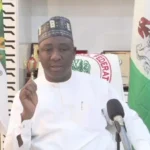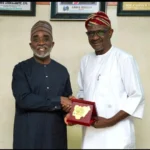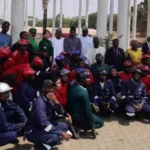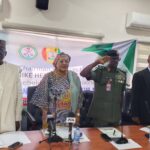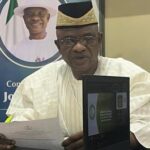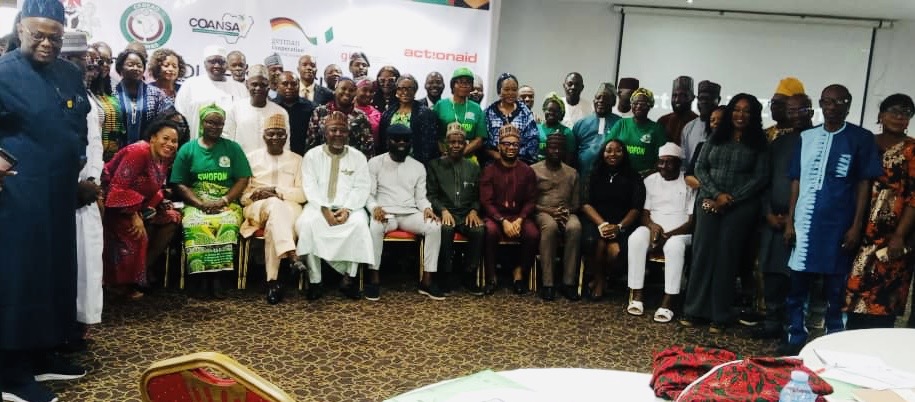By Felicia Imohimi
ActionAid Nigeria (AAN) has reaffirmed its commitment to strengthening citizen participation in the formulation of the 2026 agriculture budget to support food system transformation, wealth creation, and economic growth.
AAN Country Director, Andrew Mamedu, said this at the National Stakeholders Consultative Meeting on the 2026 Agriculture Budget, in Lagos.
The event was organised by ActionAid Nigeria in collaboration with the German International Cooperation (GIZ) and the Federal Ministry of Agriculture and Food Security (FMAFS).
Other partners included the Federal Ministry of Budget and Economic Planning and the Department of Agriculture and Rural Development of the ECOWAS Commission.
Mamedu described the meeting as part of AAN’s efforts to expand space for public participation in agricultural policy and budget processes, aiming for mutual accountability and inclusive food system transformation in Nigeria.
He expressed concern over the country’s current struggle with food inflation and insecurity, which he attributed to several factors, including a weakening naira and massive post-harvest losses.
He also cited low levels of domestic agricultural production and a heavy reliance on costly food imports as contributing to the crisis.
According to Mamedu, Nigeria’s food inflation rate stood at 21.14 per cent in May 2025, marking a 19.27 per cent decrease compared to the same period in 2024.
He said the decline was largely due to the temporary 150-day duty- and tariff-free window for the importation of staple foods like rice, wheat, and corn.
While acknowledging the short-term relief, Mamedu stressed that such interventions were not sustainable.
“A lasting solution requires deliberate and increased public investments in local food systems, particularly those that support smallholder farmers, including women and youth,” he said.
He added that such investments were essential to enhance domestic food production, reduce import dependency, and drive inclusive economic growth.
He emphasised the importance of not just increased funding, but also the timely and full release of allocated funds to the agriculture and related sectors to facilitate meaningful transformation.
Mamedu noted that the meeting also aimed to deepen understanding of the National Agricultural Technology and Innovation Policy (NATIP) and the National Agricultural Development Fund (NADF).
He said both initiatives were aligned with the goals of the Comprehensive Africa Agriculture Development Programme (CAADP).
He said the outcome would help improve Nigeria’s biennial reporting to the African Union Heads of State and Government in accordance with the 2025 Kampala Declaration.
Past consultative meetings, he said, led to the identification of priority areas for sustainable agricultural development, reflected in both federal and state agriculture budgets.
“These include increased support for women and youth in agriculture, irrigation, Climate-Resilient Sustainable Agriculture (CRSA)/agroecology, and agricultural research and development.”
In spite of progress, Mamedu noted that more must be done to ensure budget commitments translate into real-world impacts.
“We believe Nigeria’s economy will grow if the right investments are made to support smallholder farmers, especially women and youth, in areas such as extension services, access to credit, and labour-saving technologies,” he said.
He added that irrigation and reducing post-harvest losses were also critical to driving the growth.
“This growth can be achieved without bloated administrative costs or unclear and wasteful allocations within the sector,” he added.(NAN)
Edited by Dorcas Jonah/Abiemwense Moru


